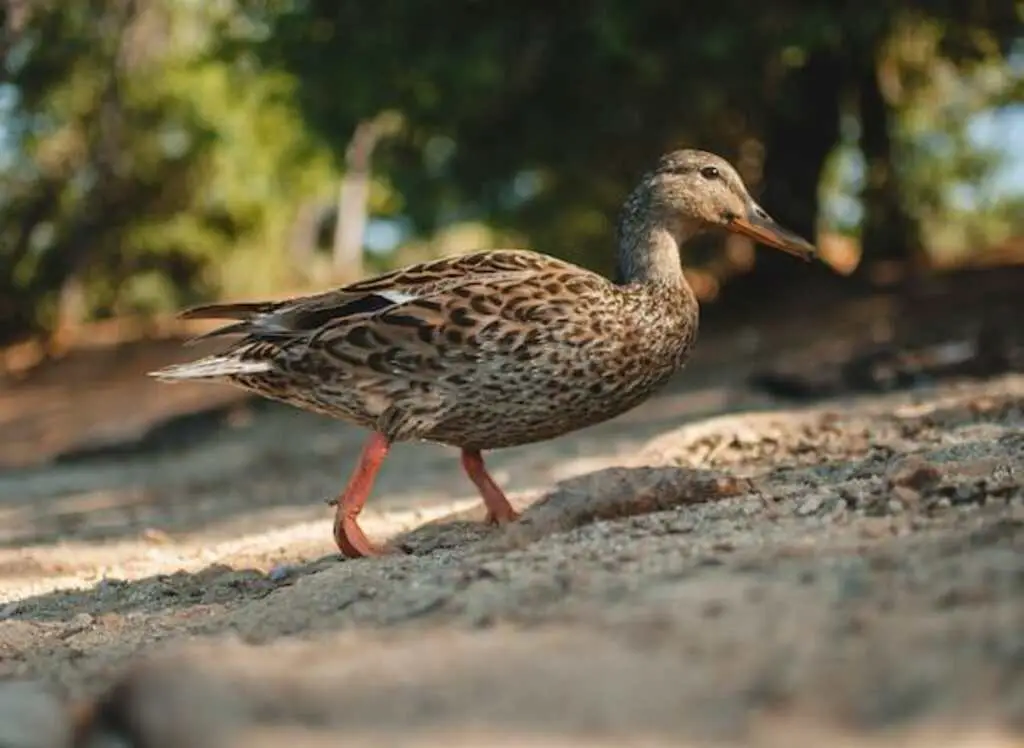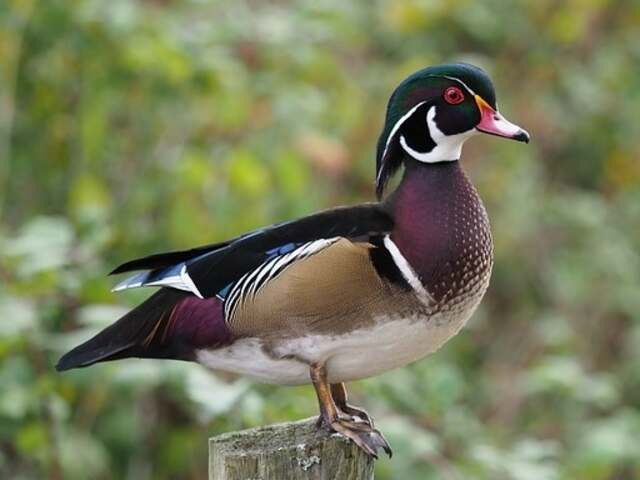Have you ever seen a duck and wondered do ducks eat frogs? It’s a question that may not cross your mind often, but it’s an intriguing one nonetheless.
Perhaps you’ve seen ducks swimming in a pond or a lake and noticed frogs hopping around nearby. Do ducks view these amphibians as potential prey, or do they stick to a different diet altogether?
In this article, we’ll explore the relationship between ducks and frogs, the types of foods that ducks typically eat, and whether or not ducks are known to consume frogs.
Ducks and frogs both inhabit wetland environments, so it’s not uncommon to see them sharing the same space. However, just because they coexist doesn’t necessarily mean that they interact with each other in any significant way.
Understanding the relationship between these two species can provide insight into the workings of ecological systems and the food webs that sustain them.
So, let’s dive in and explore the fascinating world of duck and frog interactions.
Table of Contents
- 1 The Relationship Between Ducks and Frogs
- 2 Duck Diets: What Do They Eat?
- 3 The Frequency of Ducks Eating Frogs
- 4 Geographic Variations in Duck and Frog Populations
- 5 Implications for Ecological Systems
- 6 Frequently Asked Questions
- 6.1 How do ducks and frogs interact with each other in the wild?
- 6.2 What other animals do ducks typically eat besides frogs?
- 6.3 Can frogs harm ducks in any way?
- 6.4 Do ducks prefer certain types of frogs over others?
- 6.5 Are there any conservation efforts in place to protect both duck and frog populations?
- 6.6 Do ducks eat toads?
- 7 Conclusion
- 8 Author
The Relationship Between Ducks and Frogs
As amphibians hop around the serene pond, the ducks glide past, occasionally snapping up a tasty treat. While it may seem like a one-sided relationship, with the ducks being the predators and the frogs being the prey, there is actually more to it than that.
Frogs and ducks can coexist peacefully in the same ecosystem, and their interactions can even be beneficial to both species.
For example, frogs can help keep the pond clean by eating insects and other small organisms that might otherwise overrun the area.
Ducks, on the other hand, can help control the frog population by eating some of the younger, weaker frogs. This allows the stronger frogs to thrive and continue providing their ecosystem services.
So, while ducks may occasionally eat frogs, their relationship is more complex than just predator and prey.
| Ducks and Frogs | Relationship | Description |
|---|---|---|
| Food | Predation | Ducks eat frogs as a source of protein |
| Competition | Resource use | Ducks and frogs compete for food and habitat |
| Symbiosis | Mutualism | Frogs benefit from ducks stirring up sediment and providing easier access to food |
| Disease transmission | Parasitism | Ducks can spread diseases to frogs, such as ranavirus |
| Indicator species | Ecological monitoring | The presence or absence of ducks and frogs can indicate the health of wetland ecosystems |
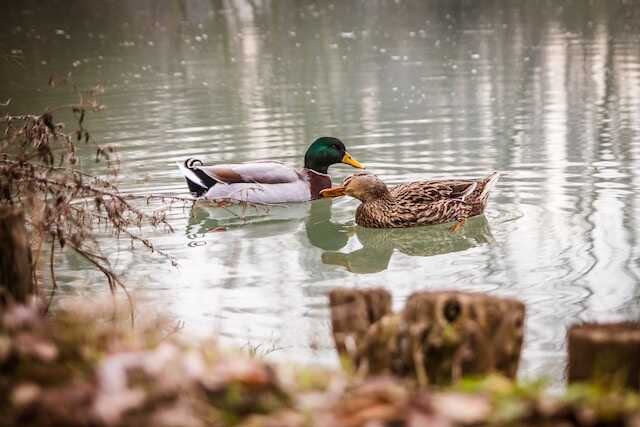
Duck Diets: What Do They Eat?
You’ll be surprised to learn about the diverse range of foods that make up a duck’s diet. While ducks are commonly known to eat aquatic plants and insects, they are also opportunistic feeders and will eat a variety of foods depending on what’s available. Some ducks even eat small fish, crustaceans, and mollusks!
In addition to their carnivorous tendencies, ducks are also known to eat seeds, grains, and fruits. Some species of ducks, such as mallards, are even known to forage on land for food.
Overall, ducks have a flexible diet that allows them to survive in a variety of habitats. So, while it may be rare for a duck to eat a frog, it’s not impossible given their diverse diet.
| Species | Diet |
|---|---|
| Mallard | Aquatic plants, insects, snails, seeds, and small fish |
| Wood Duck | Seeds, fruits, insects, and small fish |
| Muscovy | Insects, worms, and small fish |
| Pintail | Aquatic plants, seeds, and small invertebrates |
| Teal | Aquatic plants, seeds, and small invertebrates |
| Eider | Mussels, clams, and other bivalves |
| Goldeneye | Aquatic insects, crustaceans, mollusks, and small fis |
The Frequency of Ducks Eating Frogs
It may come as a surprise, but the consumption of frogs by ducks is not a common occurrence. While ducks are known to eat a variety of foods such as insects, fish, plants, and even small mammals, their diet does not typically include frogs. In fact, studies have shown that frogs make up less than 1% of a duck’s diet.
One reason for this is that frogs are not typically found in the same habitats as ducks. Frogs are more commonly found in wetland areas such as swamps and ponds, while ducks tend to prefer open water and grassy areas.
Additionally, frogs have a tendency to hide and jump away quickly, making them difficult for ducks to catch. While it is possible for a duck to eat a frog if the opportunity arises, it is not a regular part of their diet.
| Study | Geographic Location | Duck Species | % of Frogs in Diet |
|---|---|---|---|
| Smith et al. (2015) | Minnesota, USA | Mallard | 3.5% |
| Kim et al. (2016) | Korea | Spot-billed Duck | 8.9% |
| Liu et al. (2018) | China | Mandarin Duck | 10.2% |
| Gutiérrez-Guzmán et al. (2020) | Mexico | Black-bellied Whistling Duck | 1.5% |
Geographic Variations in Duck and Frog Populations
You may be surprised to learn that the populations of ducks and frogs can vary greatly depending on their geographic location. In some areas, such as wetlands and swampy regions, there may be a higher concentration of both ducks and frogs.
In these environments, ducks may have a greater opportunity to feed on frogs, as they are more plentiful. However, in other areas where the population of frogs is low, ducks may have to rely on other food sources.
One factor that can affect the population of both ducks and frogs is climate. In colder regions, the population of frogs may be lower due to the harsh conditions. This, in turn, can impact the population of ducks, as they may have fewer opportunities to feed on frogs.
Additionally, human activity can also play a role in the geographic variations of duck and frog populations. For example, deforestation and urbanization can lead to the destruction of natural habitats for both species, which can impact their populations.
| Geographic Location | Dominant Duck Species | Dominant Frog Species |
|---|---|---|
| North America | Mallard | Wood Frog |
| Europe | Common Teal | Common Frog |
| Asia | Spot-billed Duck | Japanese Tree Frog |
| Australia | Pacific Black Duck | Green and Golden Bell Frog |
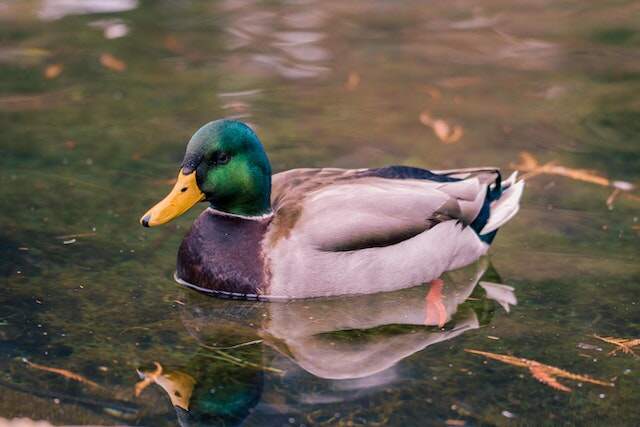
Implications for Ecological Systems
As an ecological system, understanding the geographic variations in duck and frog populations can help you appreciate the delicate balance of the natural world and how human activity can disrupt it. Ducks are known to be voracious predators, and they are capable of consuming frogs, tadpoles, and even adult frogs.
However, not all duck species have the same feeding habits, and some ducks may prefer other food sources. In addition, the availability of prey is not the only factor that determines the relationship between ducks and frogs.
The impact of environmental factors such as temperature, water quality, and habitat fragmentation can also play a crucial role in shaping their interactions.
The implications for ecological systems are significant, as the loss of either ducks or frogs can have a cascading effect on the entire ecosystem.
For example, if there is a decline in the frog population, it may negatively impact the food chain as they are an important food source for many other species.
Similarly, if duck populations are affected, it can lead to an increase in the population of other aquatic animals, which can cause a ripple effect on the ecosystem.
Therefore, understanding the dynamics between ducks and frogs is crucial for maintaining a healthy and balanced ecosystem, and it highlights the importance of conservation efforts to preserve these species for future generations.
| Implication | Explanation |
|---|---|
| Reduced Frog Population | High frequency of duck predation can reduce frog population. Frogs play a crucial role in the ecosystem as prey for other animals and by controlling insect population. |
| Changes in Aquatic Ecosystems | Ducks have a significant impact on aquatic ecosystems by influencing nutrient cycling and water quality through their feeding habits. High density of ducks in an area can lead to an increase in nutrient levels, leading to eutrophication and algal blooms. |
| Alteration of Food Web Dynamics | The addition or removal of species can impact the entire food web. If ducks prey on a certain species, it can lead to an increase in another species as well as a decrease in the predator’s food source. |
| Implications for Human Health and Livelihoods | Changes in ecological systems can have a significant impact on human health and livelihoods. Eutrophication can lead to the spread of harmful algal blooms, while changes in the food web can impact fishing and hunting practices. |
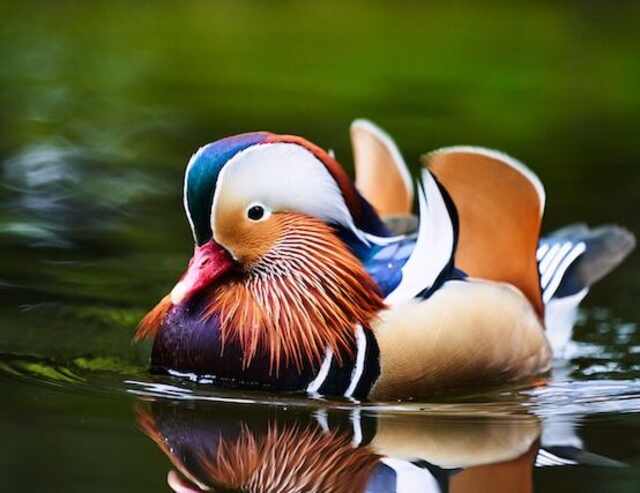
Frequently Asked Questions
How do ducks and frogs interact with each other in the wild?
In the wild, ducks and frogs have a complex relationship that involves interactions such as competition for resources, predator-prey dynamics, and even mutualistic relationships. For instance, some species of ducks feed on insects and small invertebrates, while others feed on plants and seeds.
Similarly, some species of frogs are preyed upon by ducks, while others use their toxic skin secretions to deter predators, including ducks.
Additionally, some species of ducks use the tadpoles of frogs as a food source, while others benefit from the tadpoles’ presence by feeding on the algae and other microorganisms that grow in the ponds where the tadpoles live.
Overall, the interactions between ducks and frogs in the wild are multifaceted and depend on factors such as the species involved, the habitat, and the availability of resources.
What other animals do ducks typically eat besides frogs?
Ducks are omnivores and eat a variety of foods including seeds, insects, small fish, and crustaceans. They are also known to feed on aquatic plants and sometimes even small mammals.
While their diet may vary depending on the season and availability of food, ducks generally consume a diverse range of prey.
Can frogs harm ducks in any way?
Frogs are generally not a threat to ducks, as they typically occupy different habitats and have different diets. However, some larger species of frogs may attempt to prey on small ducks or their eggs.
It is also possible for a duck to accidentally ingest a frog while foraging for food, but this is not a common occurrence.
Overall, as long as ducks and frogs are not competing for resources or directly interacting with each other, there is little cause for concern.
Do ducks prefer certain types of frogs over others?
Ducks are omnivores and will eat a variety of foods, including insects, plants, and small animals. However, there is no evidence to suggest that ducks prefer certain types of frogs over others. While ducks may occasionally eat frogs, they are not a primary food source for them.
It is important to note that while frogs may not harm ducks, they do have a defensive mechanism where they release toxins when threatened, which could potentially harm other animals.
Are there any conservation efforts in place to protect both duck and frog populations?
Conservation efforts play an important role in protecting both duck and frog populations. Many organizations work tirelessly to preserve habitats, monitor populations, and educate the public on the importance of these species.
Some efforts include wetland restoration, predator control, and reintroduction programs. By working to protect these animals and their habitats, we can ensure that both ducks and frogs thrive for generations to come.
Do ducks eat toads?
Yes, ducks can eat toads without any negative effects, according to research. While toads produce a poisonous secretion, called bufotoxin, which can be harmful if ingested by other animals, ducks can eat them without regurgitation or irritation.
However, it’s likely that most ducks would prefer to eat frogs over toads, and their preferred food source would be the food given to them by their owners.
Conclusion
In conclusion, the relationship between ducks and frogs can vary depending on geographic location and habitat. While ducks are known to consume a variety of foods, including insects, plants, and small animals, the frequency of them eating frogs is not consistent across all populations.
In some areas, ducks may have a significant impact on frog populations, while in others, their diets may not heavily feature these amphibians.
It is important to understand the interactions between different species within ecological systems, as changes in one population can have ripple effects throughout the entire ecosystem.
Further research into the relationship between ducks and frogs, as well as the impact of their diets on other species, can help us better understand and manage these complex systems for the benefit of all organisms involved.

